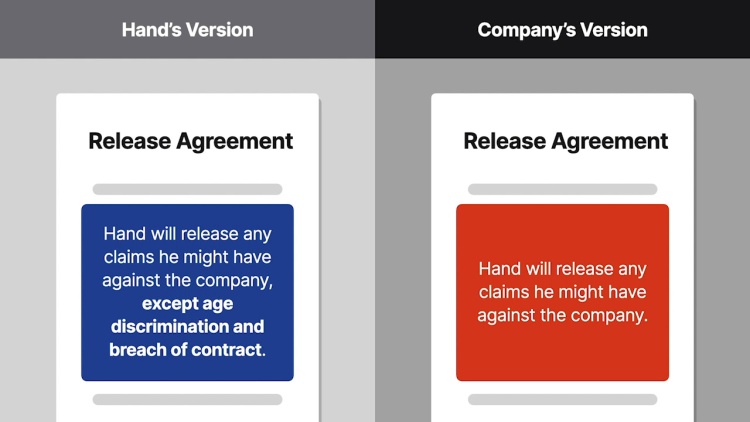Hand v. Dayton-Hudson
United States Court of Appeals for the Sixth Circuit
775 F.2d 757 (1985)

- Written by Josh Lee, JD
Facts
John Hand (plaintiff) was an attorney employed by the Dayton-Hudson Corporation (the Company) (defendant) from 1967 to 1982. Hand was allegedly terminated as a result of a restructuring by the Company. The Company offered to pay Hand $38,000 if Hand agreed to release the Company from all claims. Hand originally refused the offer, claiming that he was entitled to the same sum under the terms of his employment contract. The Company prepared the release and gave Hand a deadline to accept or reject the offer. Prior to the deadline, Hand prepared a different release that looked exactly the same as the original release except that Hand added “except as to claims of age discrimination and breach of contract.” The new release was written with the same type and model of typewriter and all other aspects of the release were identical to the original release. Hand brought the new release to a meeting with the Company’s agent, who signed it. Hand sued the Company alleging age discrimination and breach of contract. The Company requested that the trial court reform the release to the original offer and moved for summary judgment. The trial court approved the request and granted summary judgment. Hand appealed to the United States Court of Appeals for the Sixth Circuit.
Rule of Law
Issue
Holding and Reasoning (Contie, J.)
Concurrence (Wellford, J.)
What to do next…
Here's why 911,000 law students have relied on our case briefs:
- Written by law professors and practitioners, not other law students. 47,100 briefs, keyed to 997 casebooks. Top-notch customer support.
- The right amount of information, includes the facts, issues, rule of law, holding and reasoning, and any concurrences and dissents.
- Access in your classes, works on your mobile and tablet. Massive library of related video lessons and high quality multiple-choice questions.
- Easy to use, uniform format for every case brief. Written in plain English, not in legalese. Our briefs summarize and simplify; they don’t just repeat the court’s language.





